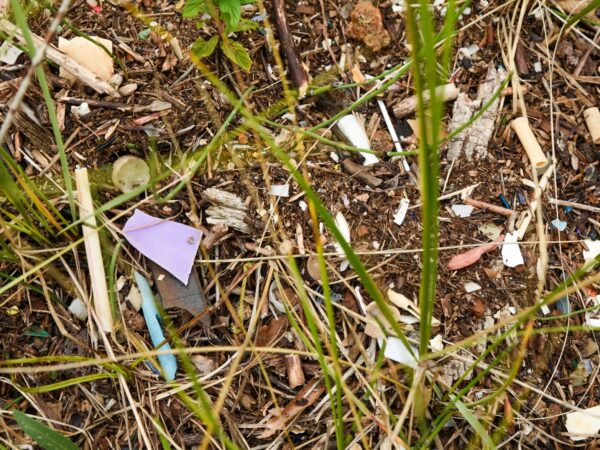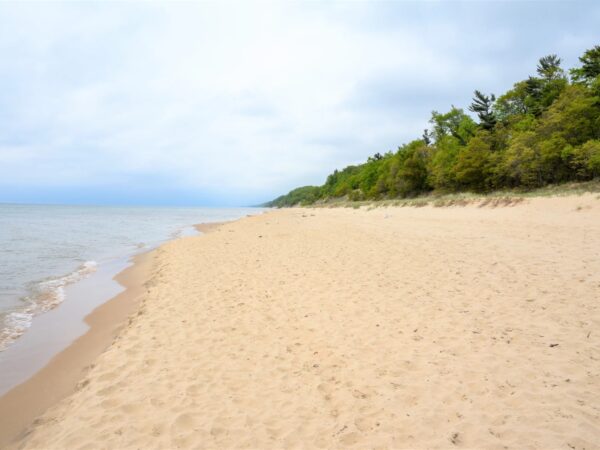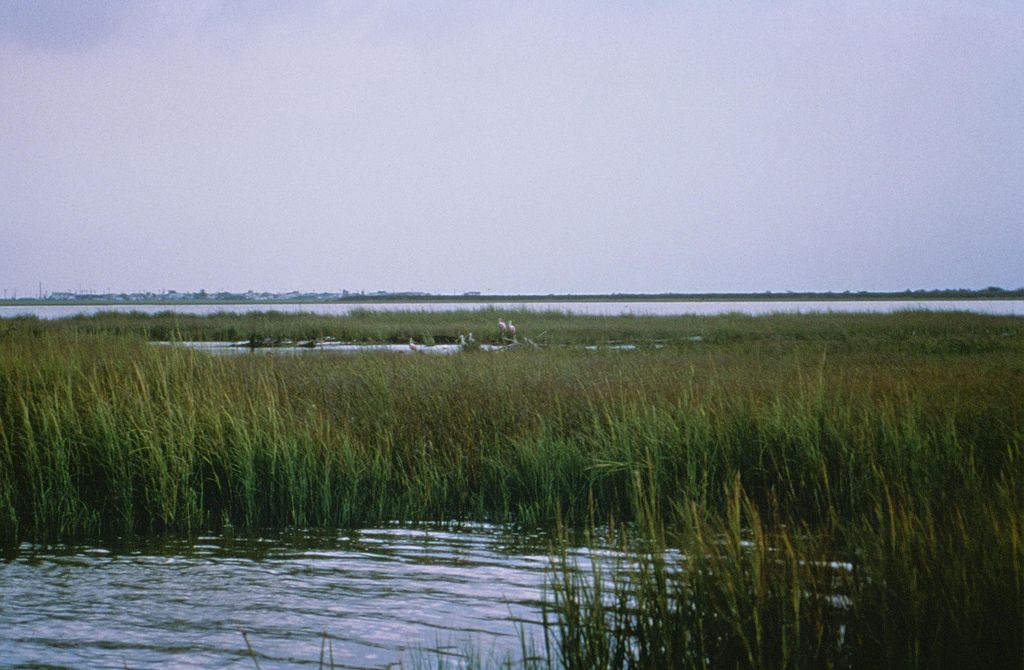
“The last line of defense” say CMU scientists on Beaver Island, Lake Michigan
When Don Uzarski graduated from college, a career as a Great Lakes scientist wasn’t in his plans.
He had majored in computer science in college and taken a programming job.
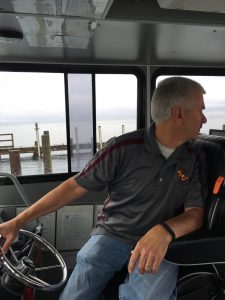
Professor Don Uzarski, courtesy of Gary Wilson
“That lasted about a day,” Uzarski told Great Lakes Now as he was revving up the engine on the Great Lakes research vessel “Chippewa” off Beaver Island in Lake Michigan.
Uzarski re-tooled to become an aquatic ecologist after realizing that the passion and interests he developed from living near lakes in his youth were meant to be his profession.
Fast-forward a couple of decades and Professor Uzarski now directs the Institute for Great Lakes Research at Central Michigan University.
Great Lakes Now recently spent a day with Uzarski and his students at the university’s Biological Station on the sprawling Beaver Island campus, a self-sustaining enclave on the island’s eastern shore.
While Uzarski and I were talking in the Chippewa’s pilot house his son, Don Jr. , was prepping the Chippewa for departure and Jessica Kosiara was briefing under graduate researchers on the use of water sampling equipment.
Don Jr. is a sophomore at Central and Kosiara is a graduate student who helps Uzarski supervise the work of the undergrads. Kosiara also works in operations at the Biological Station.
As the crew is working, Uzarski doesn’t miss a beat when I ask about his signature project, wetlands.
He’s been involved with wetlands since the mid-1990’s and in 2010 scored a coup for CMU by securing a much-coveted $10 million U.S. EPA Great Lakes restoration grant to lead regional scientists on wetlands research. The grant was renewed for another $10 million in 2015.
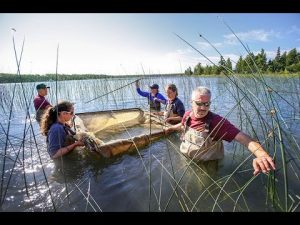
Professor Don Uzarski, courtesy of cmich.edu
For city dwellers who may never see a wetland, and wonder why they’re so important, Uzarski explains, “We’ve already eliminated 50 per cent of the coastal wetlands. Coastal wetlands are the last line of defense between the uplands where we live and the Great Lakes. They serve as natural filters of toxicants and pollutants that come off the landscape.”
The problem is “wetlands are on the coast, and that’s where humans want to be,” Uzarski says. “That’s where we want to put a resort and where we want to put manufacturing,”
It gets worse, according to Uzarski, who says “in the regions where we see the poorest water quality, we’ve eliminated up to 95 per cent of wetlands. There’s a direct link between wetlands and water quality and drinking water.”
Uzarski pauses our conversation and calls out to pull the anchor.
Uzarski not only directs the research center, he pilots the Chippewa, which – while unassuming in appearance – is large enough and has the complexity to require the pilot to have a U.S. Coast Guard license. He’s also responsible for training the crew, another requirement.
Snap, back to the interview and a question Uzarski is keen to answer.
Producing wetland data could be interesting for the academics who may want to spruce up their research credentials, but who are Uzarski’s “customers” I ask. Who will use the information he provides and for what purpose?
“The people who have to make decisions about these ecosystems,” Uzarski responds without hesitation. For example, he says the agencies who approve permits for development.
Uzarski says he understands the push and pull between development and wetland conservation interests that agencies face. But he wants his work to allow development to take place in a “more informed way.”
Without the right information, Uzarski says decision makers “have no idea how to make those decisions.”
After a tour of the Mesocosm Lab – (think examining the natural environment under controlled conditions) – Uzarski leaves the students to their work and we move on to an environment I’m more familiar with.
Coffee at a conference table.
There’s one burning issue we’ve yet to hit. It’s the reality that the wetland work’s funding is threatened by President Trump’s proposed Great Lakes budget cuts and his move to shrink the U.S. EPA – Uzarski’s key federal partner.
What’s the case for continued federal funding, I ask.
“I think the case is pretty simple. Do we need clean drinking water? Yes,” Uzarski replies, answering his own question.
He then cited the failures in Flint and Toledo and the significant costs of dealing with problems after the failure.
And to prove to the Washington politicians that today’s scientists are about more than data analysis and lab jargon, Uzarski referenced the “thousands of jobs from backhoe operators to scientists and everything in between” that result from restoring the Great Lakes.
Uzarski says when it comes to clean drinking water, “we have to be out front of it.”



